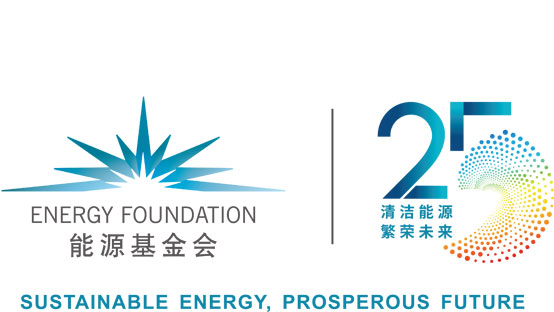Dec 1, 2017
2017 Annual Report of China’s Passenger Vehicle Fuel Economy
With support from Energy Foundation China, the Innovation Center for Energy and Transportation studied China’s joint Corporate Average Fuel Consumption-New Energy Vehicle credits policy, and compared the new energy vehicle credits with California’s zero-emission vehicle integration mechanism. Through exploring the current status and future trends of the corporate-average fuel consumption in China, this annual report examines how the new energy vehicle credits and the dual credit policy can impact the auto industry.
Dec 1, 2017
2017 Annual Report on the Passenger Vehicle Fuel Economy Difference Between Real Road Data and Driving Cycles
With support from Energy Foundation China, the Innovation Center for Energy and Transportation examined the fuel economy difference between real road data and driving cycles from many perspectives, including vehicle classifications, car brands, testing regions, seasons, vehicle weights, fuel consumption levels in typical working condition, and best-selling models. The annual report also explores possible reasons behind the difference and provides technical support for fuel economy management in China.
Nov 8, 2017
Climate Change in the Chinese Mind Survey Report 2017
In the opening session of the 19th Communist Party congress, president Xi Jinping pointed it out that by “taking a driving seat in international cooperation to respond to climate change, China has become an important participant, contributor, and torchbearer in the global endeavor for ecological civilization.”
Nov 1, 2017
Guideline for Disaggregated Coal Control and Clean Heating; Case Studies on Clean Heating Technologies
The Innovation Center for Clean-air Solutions and the Beijing Municipal Research Institute of Environmental Protection studied clean energy transformation in the Beijing-Tianjin-Hebei region and produced two reports: the Guideline for Disaggregated Coal Control and Clean Heating, and the Case Studies on Clean Heating Technologies. They provide technical assistance to local cities that seek to control disaggregated coal use. The research was supported by Energy Foundation China.
Sep 28, 2017
Green Development of Construction Enterprises
This report summarizes green development and construction practices at the China Railway Construction Group and presents a green development model for construction enterprises. Taking the group as an example, the project looks into how to promote green development in construction enterprises. After analyzing policy obstacles the new model faces, the report puts forward policy recommendations in response.
It was supported by Energy Foundation China and conducted by the China Railway Construction Group in 2017.
Sep 27, 2017
How to Reach Air Quality Standard of PM2.5 in China by 2030 -- a numerical simulation discussion based on energy and end-of-pipe control scenarios
In order to support the potential of achieving long-term improvement of air quality in China, the Energy Foundation China supports Tsinghua University to conduct a study on How to Reach Air Quality Standard of PM2.5 in China by 2030. Based on the results from energy forecasting model, emission inventory, and air-quality model, this report provides recommendations for the major cities of China to reach Air Quality Standard of PM2.5 in near future.
Sep 26, 2017
The Hidden Costs of China’s Coal-to-Chemical Sector -- A framework to stress test investments for environmental risks
To better inform investment decision making, this study develop a pragmatic framework for investors to assess environmental risks using the coal-to-chemical sector as an example. This report is developed by the Trucost and S&P Dow Jones Indices, and is supported by Energy Foundation China.
Sep 1, 2017
Resident Awareness of Disaggregated Coal Control in the Beijing-Tianjin-Hebei Region
In 2017, Energy Foundation China supported the Center for Environmental Education and Communications of the Ministry of Environment Protection, the Renmin University, and the MediaQLab to research how residents in the Beijing-Tianjin-Hebei region are using disaggregated coal and their environmental awareness, The resulting report analyzes experiences and challenges of promoting disaggregated coal control policies and provides comprehensive recommendations that will help policymaking.
Sep 1, 2017
Communications Toolkit for Disaggregated Coal Control
In 2017, Energy Foundation China supported the Center for Environmental Education and Communications of the Ministry of Environment Protection, the Remin University, and the MediaQLab to develop a communications toolkit to help control disaggregated coal burning. Based on an analysis of user awareness, behavior, and feedback on disaggregated coal and its alternatives, the toolkit provides practical communications methods to promote stakeholder understanding and implementation of disaggregated coal control.
Aug 16, 2017
Changing Cities in 5 Steps
China’s urbanization is transitioning from an era of sprawling expansion to the pursuit of livability. Only cities that are designed and constructed for people can be livable and sustainable.







